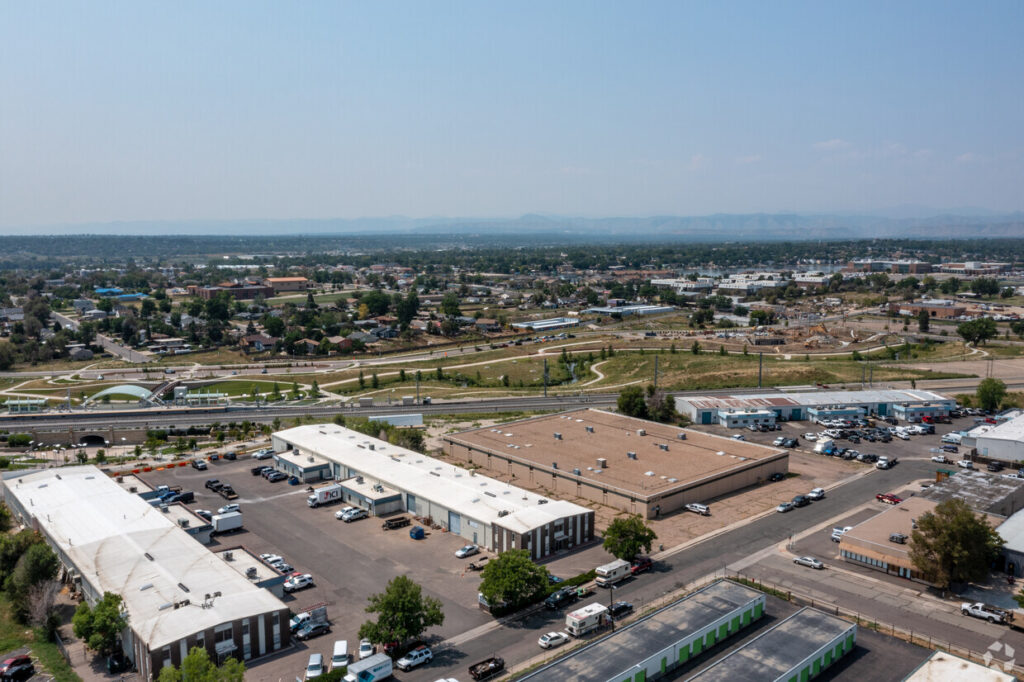Denver’s thriving real estate market presents a golden opportunity for aspiring investors to tap into commercial properties. To start this journey successfully, it’s essential to grasp the fundamental concepts underlying commercial real estate. This involves understanding the diverse property types, lease structures, and income potential. By familiarizing yourself with these basics, you set the stage for informed decision-making.
The allure of investing in Denver’s commercial property market is undeniable. The city’s strategic location, robust economy, and growing population contribute to a dynamic environment ripe for investment. Whether it’s retail spaces, office buildings, or industrial complexes, Denver offers many options for investors seeking stability and growth.
Why Invest in Commercial Real Estate?
Investing in commercial real estate presents a host of compelling advantages. Unlike residential properties, commercial properties often have longer leases, leading to a more predictable income stream. Additionally, the potential for higher returns can be achieved through multiple income sources within a single property, such as renting out office spaces and parking lots. However, as with any investment, there are risks involved. These can range from economic downturns impacting occupancy rates to unexpected property maintenance costs. To navigate these challenges, developing a risk mitigation strategy that aligns with your investment goals is crucial.
Residential vs. Commercial Real Estate Investment
Distinguishing between residential and commercial real estate investments is important for a successful strategy. Commercial properties typically demand higher upfront investment, but they often yield greater rental income and appreciation rewards. Moreover, commercial leases tend to be longer and have less hands-on management than residential properties. Your choice should hinge on your investment objectives and your risk tolerance. Understanding that commercial real estate is a business investment, while residential properties are more inclined towards personal use, will shape your decisions.
Analyzing Denver’s Commercial Real Estate Market


Delving into Denver’s commercial real estate market requires a comprehensive analysis of prevailing trends and performance indicators. Staying attuned to the city’s economic growth, job market, and population shifts is paramount. The market’s cyclical nature demands a discerning eye to identify optimal entry and exit points. By recognizing areas on the point of development or experiencing revitalization, investors can position themselves to capitalize on potential future value. This involves thorough research and consulting experts who possess an intricate understanding of Denver’s real estate landscape.
Types of Commercial Real Estate Properties
Commercial real estate offers a diverse array of property types, each with unique prospects, challenges, and potential rewards.
Office Spaces
These properties cater to businesses in need of a professional environment. Investing in office spaces can provide stable rental income, especially if located in prime business districts. However, changing work trends and technological advancements might impact demand, making adaptability a key consideration.
Retail Spaces
Retail properties encompass a broad spectrum, from shopping centers to standalone stores. The allure of retail lies in the potential for high foot traffic and tenant stability. Yet, shifts in consumer behavior and online shopping trends necessitate a thorough assessment of the property’s location and relevance to the target audience.
Industrial Spaces
Industrial properties, including warehouses and distribution centers, have gained prominence with the rise of e-commerce. Their potential for generating consistent income is bolstered by increasing demand for logistics facilities. However, understanding the logistics landscape and the location’s proximity to transportation hubs are vital factors.
Financing Your Commercial Real Estate Investment
Investors must know the financing options available for commercial real estate ventures. Loans, mortgages, and alternative funding sources have distinct advantages and considerations. Traditional loans from banks offer stability and often lower interest rates, but they require rigorous credit checks and substantial down payments.
Commercial mortgages allow you to spread payments over an extended period. Alternatively, alternative funding sources like private investors or Real Estate Investment Trusts (REITs) provide flexibility and potentially faster access to capital. Evaluating your financial situation and investment goals will guide your choice of financing.
Due Diligence in Commercial Real Estate
Successful commercial real estate investment hinges on meticulous due diligence. Investigating the property’s history and condition helps unearth potential issues impacting its value. Environmental concerns, property maintenance history, and outstanding legal disputes must be scrutinized. Reviewing legal and financial documentation, including leases, tax records, and property titles, is essential to ensure a smooth transfer of ownership. Engaging professionals such as property inspectors, appraisers, and attorneys can aid in uncovering hidden risks and safeguarding your investment.
Tips on Making an Offer
When making an offer on a commercial property, striking the right balance is essential. Crafting an attractive offer to the seller and aligning it with your financial goals is an art. Thorough research on comparable sales helps you determine a competitive price. Understanding the property’s potential income streams and the market’s dynamics lets you make an informed decision. While negotiation is part of the process, offering too low might not be well-received.
Additionally, utilizing a Letter of Intent (LOI) is a strategic move. An LOI outlines your offer’s key terms and conditions before finalizing the purchase agreement. Although not legally binding, an LOI sets the groundwork for negotiations and helps prevent misunderstandings during the closing process.
Closing the Deal
The closing process is a crucial step in finalizing a commercial real estate transaction. It involves intricate steps, including property inspections, title searches, and legal documentation. Partnering with a skilled real estate attorney ensures all necessary documents are in order. Planning for due diligence and potential contingencies is vital. Avoiding common pitfalls, such as underestimating timelines or hidden costs, is essential. Staying diligent and working closely with professionals helps ensure a smooth and successful closing.
Managing and Maintaining Commercial Properties
Effective property management is key to the long-term success of a commercial investment. Whether you self-manage or hire a property management company, consistent tenant communication, efficient rent collection, and swift issue resolution are crucial. Clear lease agreements and positive tenant relations minimize vacancies. Maintenance and repairs should be addressed promptly to prevent costly surprises. A proactive approach to property management maintains value and tenant satisfaction.
Leveraging Tax Benefits in Commercial Real Estate
Understanding the tax benefits available in commercial real estate can significantly impact your investment’s returns. Tax deductions, including depreciation and mortgage interest, can offset taxable income. However, navigating tax regulations requires expertise. Collaborating with tax professionals specializing in real estate ensures you capitalize on available deductions and incentives. This strategic approach minimizes tax liability and optimizes your investment’s financial performance.
Assessing and Improving Property Value
Continuously assessing your property’s value is essential to thrive in commercial real estate investing. Regular property valuations inform you about its market worth, enabling strategic decision-making. Furthermore, enhancing your property’s value can lead to better returns. Implementing improvements through renovations, updated amenities, or energy-efficient features can attract higher-quality tenants and increase rental income. By keeping a pulse on your property’s value and making thoughtful enhancements, you position yourself to maximize returns and maintain a competitive edge in the market.
Exiting Your Commercial Real Estate Investment
The decision to exit your commercial real estate investment requires careful consideration and planning. Strategies for selling or exiting your property include selling it on the market, passing it on to heirs, or exchanging it for another property through a 1031 exchange. Each route has financial and tax implications that must be weighed against your investment objectives.
Identifying the right time to sell is equally crucial. Monitoring market trends and assessing your investment’s performance can help gauge when the market aligns with your profit goals. Expert guidance and a well-thought-out exit strategy ensure you maximize your returns when exiting your investment.
Summary: The Roadmap to Success in Commercial Real Estate Investing
In the intricate world of commercial real estate investing, success hinges on a multifaceted roadmap. From mastering the basics and understanding property types to analyzing market trends and leveraging tax benefits, a comprehensive approach is vital. Crafting sensible offers and navigating the closing process ensures smooth transactions. Effective property management and strategic enhancements maintain value. Furthermore, regular valuations and a well-planned exit strategy safeguard your investment’s longevity. By merging knowledge, careful planning, and diligent execution, you pave the way for success in commercial real estate investment.


